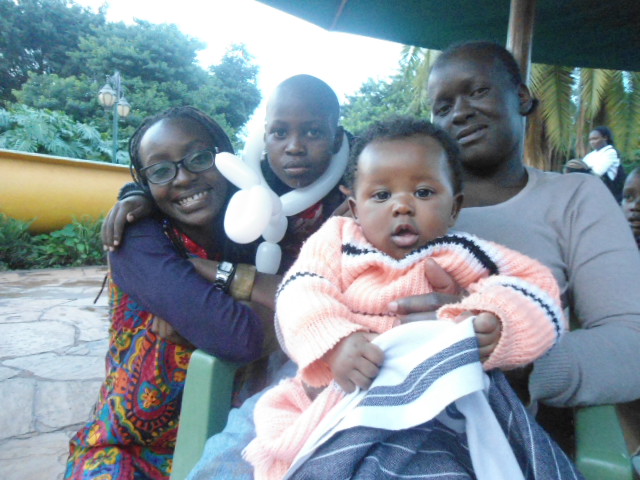 |
| A student heading home with food packages. |
Many adults remember back to when they were children and it snowed so much that school closed. Even some of today's students enjoy the freedom provided by the unexpected snow day. But more frequently, more children are hating to hear that school has been called off. These are children in families that are struggling to make it, where money may not stretch far enough to fill hungry bellies.
This winter has provided some very difficult weather in various parts of this country. The announcement that school is cancelled sometimes has been just a bit too frequent. And as the end of the month approaches, when some family paychecks or food stamps or assistance checks can be stretched no further, school provides a critical lifeline to make sure students get enough to eat.
So, in a city like Cincinnati, where emergency food pantries were forced to close, the end of the month was approaching, and school was shut for a five days in a row, the situation almost became a crisis, according to Sarah Cook, public relations specialist for
FREESTORE FOODBANK.
That's when the teachers sprung into action. Kyle Niederman, principal of Newport Intermediate school was well aware of how critical the situation had become. In his school district, approximately 90 percent of the students are eligible for free or reduced price lunches. By calling school off for a fifth day, he knew that for many students it would mean an entire week without a nutritious meal or even without any meal at all. Some 20 teachers showed up at the school when Mr. Niederman issued the call for help.
In the bitter cold, they trekked throughout the sending district, delivering food to their students in need. In all, they delivered 66
POWER PACKS, nonperishable food that is delivered to the neediest students, so they have enough to eat every weekend. Kyle Niederman said, "We were concerned about our students and wanted to make sure we helped them the best we could. They'll have food this weekend, and hopefully they'll have a good weekend."
An entire community of Lower Price Hill, where half of the families live below the poverty line, sprung into action when it became clear that a large number of children would be cold and hungry over the weekend. Mandy Reverman, who runs a nonprofit in the community, said, "Obviously, with the kids being out of school all week, we were in a panic thinking of the kids who maybe hadn't eaten all week."
The local community center opened for a few hours so that Power Packs could be distributed. School officials notified parents of the children who attended Oyler School. Volunteers then got together and served a hot meal to the families. A total of 85 Power Packs were distributed.
The extent of childhood hunger can be vast within this country. Just a simple thing, like closing school, can affect the youngest members of the community. It takes a village, we all know. We are our neighbors' keepers.
 |
| A student receiving a Power Pack from the community center. |
Thanks to this article from Huffington Post: http://www.huffingtonpost.com/2015/02/26/snow-days-hunger-children_n_6754074.html?ncid=fcbklnkushpmg00000054; and this article from Cincinnati.com: http://www.cincinnati.com/story/news/2015/02/20/school-meals-communities-take-action/23760601/.








